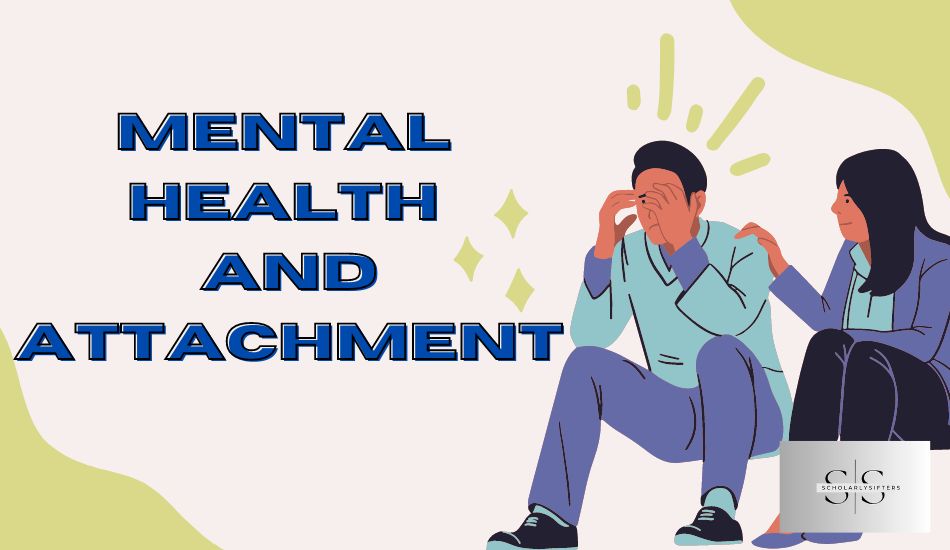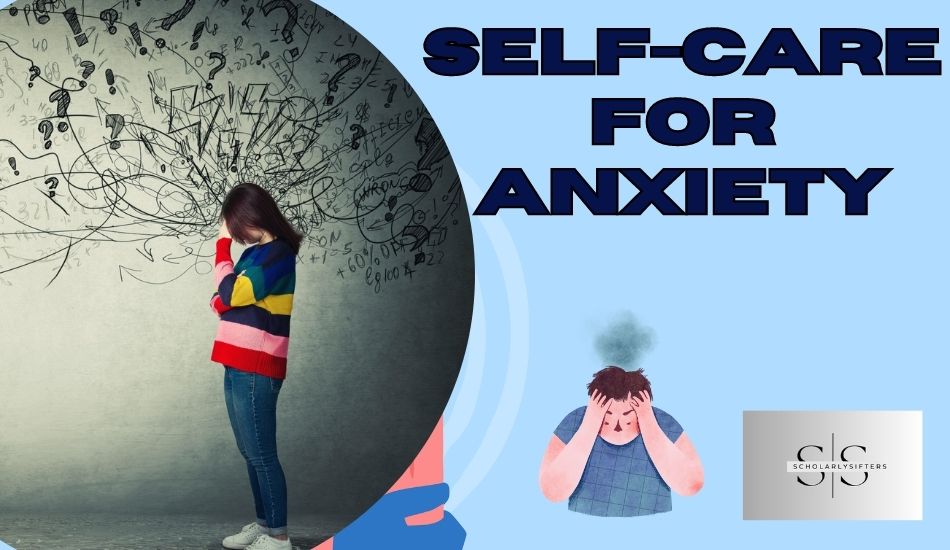No products in the cart.

Embracing the Mind-Heart Connection: Unraveling the Bond Between Mental Health and Attachment
Introduction to Mental Health and Attachment
Two key factors—mental health and attachment—significantly influence an individual’s well-being and interpersonal interactions. Understanding the complex interaction between these two ideas is essential for understanding human growth and advancing general psychological health. This introduction gives a general review of attachment on mental health, emphasising the significance of the connections between both in determining our lives.
Definition of Mental Health
Mental health encompasses emotional, psychological, and social well-being, influencing how individuals think, feel, and act in various situations. It is an integral part of our overall health and contributes to our ability to cope with stress, form meaningful relationships, and make informed decisions.
Definition of Attachment
A kid and their primary carer during early life often develop a strong emotional tie known as attachment. This connection has a significant impact on how people see and interact with the outside world, which affects their ability to establish trusting relationships and control their emotions over the course of their lives.
Importance of Exploring the Relationship Between Mental Health and Attachments:
The connection between attachments and mental health is complex and multifaceted. A strong foundation for emotional resilience, self-esteem, and positive interpersonal interactions is established during childhood through secure attachment. Insecure attachment, on the other hand, might make it challenging to control emotions, build meaningful relationships with others, and feel happy.
Investigating the relationships between attachment and mental health can help us understand how people grow emotionally, how their personalities evolve, and how they cope. It emphasises the significant influence that early caregiving experiences have on a person’s trajectory towards mental health and provides insights into therapeutic interventions and support networks that can encourage healthy attachment patterns and improve psychological wellbeing all around.
Understanding Attachment and Mental Health Theory:
A psychological framework called the attachment and mental health hypothesis, which was created by British psychologist John Bowlby in the middle of the 20th century, aims to explain the emotional ties that develop between people, particularly between children and their primary carers. It highlights the crucial role that secure attachment plays in emotional growth and adaptive functioning throughout life.
Attachment Across the Lifespan (Infancy to Adulthood):
Attachment bonds formed in early childhood can continue to influence an individual’s emotional and relational experiences throughout their life. The attachment system is not limited to infancy but continues to shape how individuals’ approach and navigate their adult relationships and experiences.
Influence of Early Relationships on Attachment Formation:
Parent-Child Bonding:
The development of attachment patterns is greatly influenced by the strength of the parent-child relationship during infancy and early childhood. While neglect or uneven care may result in insecure attachment patterns, responsive, caring, and consistent caregiving promotes secure attachment.
Secure Base and Safe Haven:
Attachment figures provide a secure base from which children can explore the world and a safe haven to return to when they feel threatened or distressed. This dynamic helps children develop a sense of trust in their caregiver and confidence in exploring their environment.
The Impact on Mental Health and Attachment
Secure Positive Attachment and Mental Health Outcomes:
Individuals who develop secure attachment patterns during childhood tend to experience several positive mental health outcomes.
These include:
Emotional Regulation: Securely attached individuals are better equipped to manage and regulate their emotions, leading to reduced anxiety and stress.
Self-Esteem: Secure attachment fosters a positive self-image and higher levels of self-esteem, allowing individuals to have a confident sense of self-worth.
Trust and Intimacy: Securely attached individuals find it easier to trust others and engage in meaningful and fulfilling intimate relationships.
Resilience: Having a secure base in early attachment experiences provides a foundation for emotional resilience, allowing individuals to bounce back from challenging life events.
Insecure Mental Health and Attachment Challenges:
Anxiety and Insecurity:
Individuals with insecure attachment patterns, such as avoidant or ambivalent, may experience heightened anxiety and insecurity in their relationships.
Depression and Emotional Regulation:
People who struggle to control their emotions may be more prone to depression. Insecure attachment might cause these problems. It’s possible that these people acquired unhealthy coping skills while growing up, which has affected how well they can regulate their emotions.
Long-term Effects of Early Attachment on Mental Health:
The quality of early attachment experiences can have lasting effects on an individual’s mental health and overall well-being. Secure attachment is associated with better coping skills, stronger emotional resilience, and more positive self-perceptions.
Traumatic Experiences and Attachment Disruptions:
Traumatic events, such as abuse, neglect, or the loss of a significant attachment figure, can disrupt secure attachment bonds and contribute to the development of insecure attachment patterns.
Case Studies and Real-life Examples:

Case Study 1: Secure Attachment and Resilience
Name: Varsha
Age: 40
Attachment Type: Secure
Background:
Varsha grew up in a nurturing and supportive environment with responsive caregivers. Her parents provided consistent emotional support and validation, fostering a secure attachment bond throughout her childhood. She was comfortable seeking comfort and support from her parents whenever she faced challenges or stressors.
Mental Health Outcome:
As an adult, Varsha exhibits resilience and emotional stability. She maintains healthy relationships and feels secure in her interactions with others. Her secure attachment style has enabled her to develop effective coping mechanisms, leading to reduced anxiety and depression levels compared to individuals with insecure attachment styles. Varsha’s ability to trust and form healthy connections has contributed to her overall mental well-being.
Case Study 2: Insecure Attachment and Anxiety
Name: Rahul
Age: 45
Attachment Type: Anxious-Avoidant
Background:
Rahul had a tumultuous upbringing. His primary caregiver, his mother, was inconsistent in responding to his emotional needs. Sometimes she would be loving and attentive, but at other times she would be emotionally distant or dismissive of his feelings. This inconsistency led to an anxious-avoidant attachment style, where Rahul developed a fear of rejection and learned to suppress his emotions.
Mental Health Outcome:
As an adult, Rahul struggles with anxiety and emotional regulation. His anxious-avoidant attachment style leads him to avoid close relationships, as he fears being rejected or abandoned. He finds it challenging to express his feelings openly and tends to internalize his emotions, leading to increased anxiety levels. James may also exhibit difficulties in trusting others and often experiences feelings of loneliness and isolation.
These case studies highlight how the quality of early attachment experiences can influence mental health outcomes in adulthood. Secure attachment fosters emotional resilience and healthy relationship patterns, while insecure attachment styles can contribute to various mental health challenges, including anxiety, depression, and difficulties in forming meaningful connections with others.
Success stories of individuals who improved their mental health through attachment-based interventions:
Sharing success stories of people who have benefited from attachment-based therapy can give those facing comparable difficulties hope and inspiration. These narratives demonstrate the therapeutic value of safe attachments and the potency of diverse treatment modalities.
Ethical Considerations in Working with Attachment and Mental Health:
Confidentiality and Trust:
Working with attachment and mental health requires careful ethical concerns such as maintaining client privacy and fostering trust. The confidentiality of the information that clients disclose in treatment must be felt by them to be safe. When discussing delicate attachment-related concerns, trust is extremely important as the therapy relationship’s cornerstone.
Future Directions and Research Opportunities:
Advancements in Attachment Theory and Mental Health:
Continued research in attachment theory can lead to deeper insights into the relationship between attachment and mental health. Advancements may shed light on the role of genetics, epigenetics, and neurobiology in shaping attachment patterns and their impact on psychological well-being.
Integrating Attachment Concepts in Mental Health Practices:
Future directions in mental health practices may involve integrating attachment concepts into various therapeutic modalities. Utilizing attachment-based interventions can enhance treatment outcomes, particularly for individuals struggling with attachment-related challenges.

Conclusion
The relationship between mental health and attachment is profound and multifaceted. Early attachment experiences significantly impact an individual’s emotional development, shaping their attachment styles and influencing their mental well-being throughout life.
Final Thoughts on the Importance of Nurturing Healthy Attachment for Psychological Well-being:
Nurturing healthy attachment relationships is a cornerstone of psychological well-being. By providing a secure base for emotional exploration and growth, secure attachments foster resilience, emotional regulation, and the ability to form healthy relationships, ultimately contributing to overall psychological well-being and life satisfaction.







